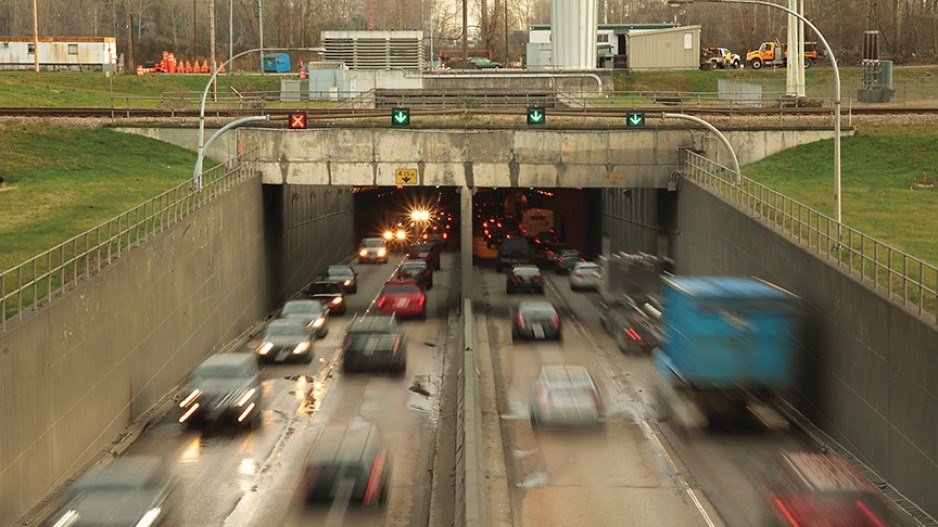Two major engineering projects in Western Canada – the George Massey Tunnel replacement and the Trans Mountain pipeline twinning project – are pushing ahead as both reach approval milestones and seek to meet conditions in 2017.
A recent report exposing the mounting financial loss of the Port Mann Bridge has spurred doubt in the future of tolling but has not deterred the progress of the George Massey Tunnel replacement.
Figures released as part of the most recent B.C. budget indicate that the Port Mann will lose $262 million over the next three years. The government estimated the bridge would begin to turn a profit in 2018. No review on tolling has been made, and funding for the tunnel replacement has been green-lighted.
The province will spend $592 million on the Massey Bridge this coming year and $2.4 billion out of the projected $3.5 billion over the next three years, according to the B.C. budget.
Completion of the new, 10-lane bridge isn’t expected until 2022.
Many have been left wondering why there hasn’t been an investigation into alternatives to tolling, as it has become apparent commuters are avoiding bridges like the Port Mann to dodge tolls.
According to the B.C. government website, the George Massey Tunnel carries an average of 80,000 vehicles each day.
If commuters choose to avoid the future George Massey bridge due to costs, the closest free route would be the Alex Fraser Bridge.
“In terms of our project, we will be in construction for the next five years,” said Geoff Freer, executive director of the George Massey Tunnel replacement project. “You’ll see that healthy debate continue, and we anticipate that final decisions on any changes to tolling will be done on a regional basis while we are in construction.”
With tolling consideration expected to continue, the project will start to mobilize in the next month.
“We have just recently received our environmental certificate, so we have that approval,” Freer said. “We have just received our Agricultural Land Commission approval and now we are just organizing for site preparation and construction that will be starting later in March.
Moving from the valley to the mountains, the Trans Mountain pipeline twinning project is powering ahead. With major approval milestones out of the way, the project now prepares to meet imposed conditions.
“Where we are at now in terms of the project is really a lot of behind-the-scenes work, planning and doing the work that’s needed to meet the conditions,” said Ali Hounsell, spokeswoman for the Trans Mountain expansion project.
The pipeline received approval from the National Energy Board in May 2016, subject to 157 conditions. The federal government gave its approval of the project on November 29, 2016. Finally, the pipeline received its environmental certificates from the B.C. government in January.




